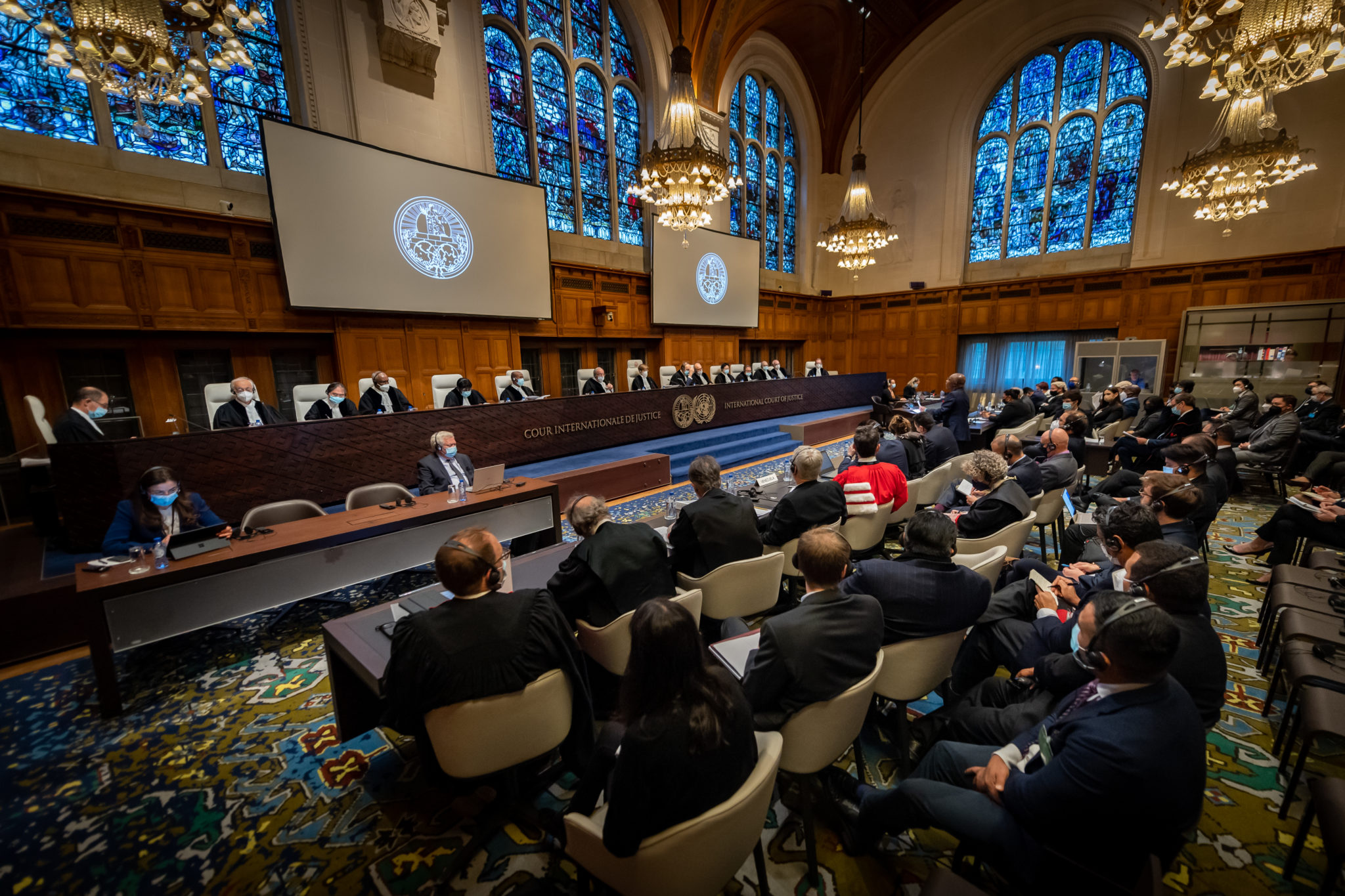Guyana has asked the International Court of Justice (ICJ) to reject Venezuela’s preliminary objections in the ongoing border controversy case as they are “legally unsupportable” and “entirely without foundation.”
Venezuela, in its late submission on Thursday, argued that the United Kingdom (UK) should be a party to the case since it was party to the Arbitral Award of 3rd October 1899 when the territory was “given” to Guyana, and asked the World Court to dismiss the substantive case.
In opening arguments on Friday, Guyana’s Agent, Carl Greenidge, told the World Court that “The preliminary objections appear to be a device intended to derail and delay the Court’s determination of the merits of Guyana’s claims.”
To cement Guyana’s case, World Court President Judge Joan E. Donoghue and other judges heard from Professor Pierre d’Argent who argued that Venezuela’s preliminary objections are “procedurally infrequent” and therefore inadmissible in light of the Court’s order of 19th of June, 2018, governing submissions and filings. Building on this, Christina L. Beharry argued that Venezuela’s objections conflict with the judgement of 18th of December, 2020, when the Court determined it has jurisdiction to hear the case, which is Res Judicata. And that, to uphold those objections would be contrary to the statute.
Guyana stands united on settling Venezuela border controversy at ICJ – President Ali | OilNOW
Paul S. Reichler focused on the merits of Venezuela’s preliminary objections, addressing the legal standard under the Monetary Gold line of cases. Reichler argued that the UK is not an indispensable third party to the proceedings. He argued too that the UK has no legal interest that will be affected by the World Court’s judgment.
Professor Phillip Sands closed Guyana’s first round of arguments by responding directly to specific allegations made by Venezuela regarding the invalidity of the 1899 Arbitral Awards.
The case will continue Monday, November 21, 2022.
Guyana expects a final judgment that the 1899 Arbitral Award, which established the location of the land boundary between then British Guiana and Venezuela, remains valid and that the Essequibo region belongs to Guyana and not its Spanish-speaking neighbour.
Guyana’s legal team also consists of; Sir Shridath Ramphal, OE, OCC, KC, Co-Agent and Counsel, Mr. Alain Pellet, Professor Emeritus of the University Paris Nanterre, former Chairman of the International Law Commission, member of the Institut de Droit international, Mr. Payam Akhavan, LLM, SJD (Harvard University), Professor of International Law, Senior Fellow, Massey College, University, of Toronto, member of the Bar of New York and the Law Society of Ontario, member of the Permanent Court of Arbitration, Mr. Edward Craven, Barrister, Matrix Chambers, London, Mr. Juan Pablo Hugues Arthur, Foley Hoag LLP, member of the Bar of the State of New York, Ms. Isabella F. Uria, Attorney–at-Law and Foley Hoag LLP, member of the Bar of the District of Columbia.



